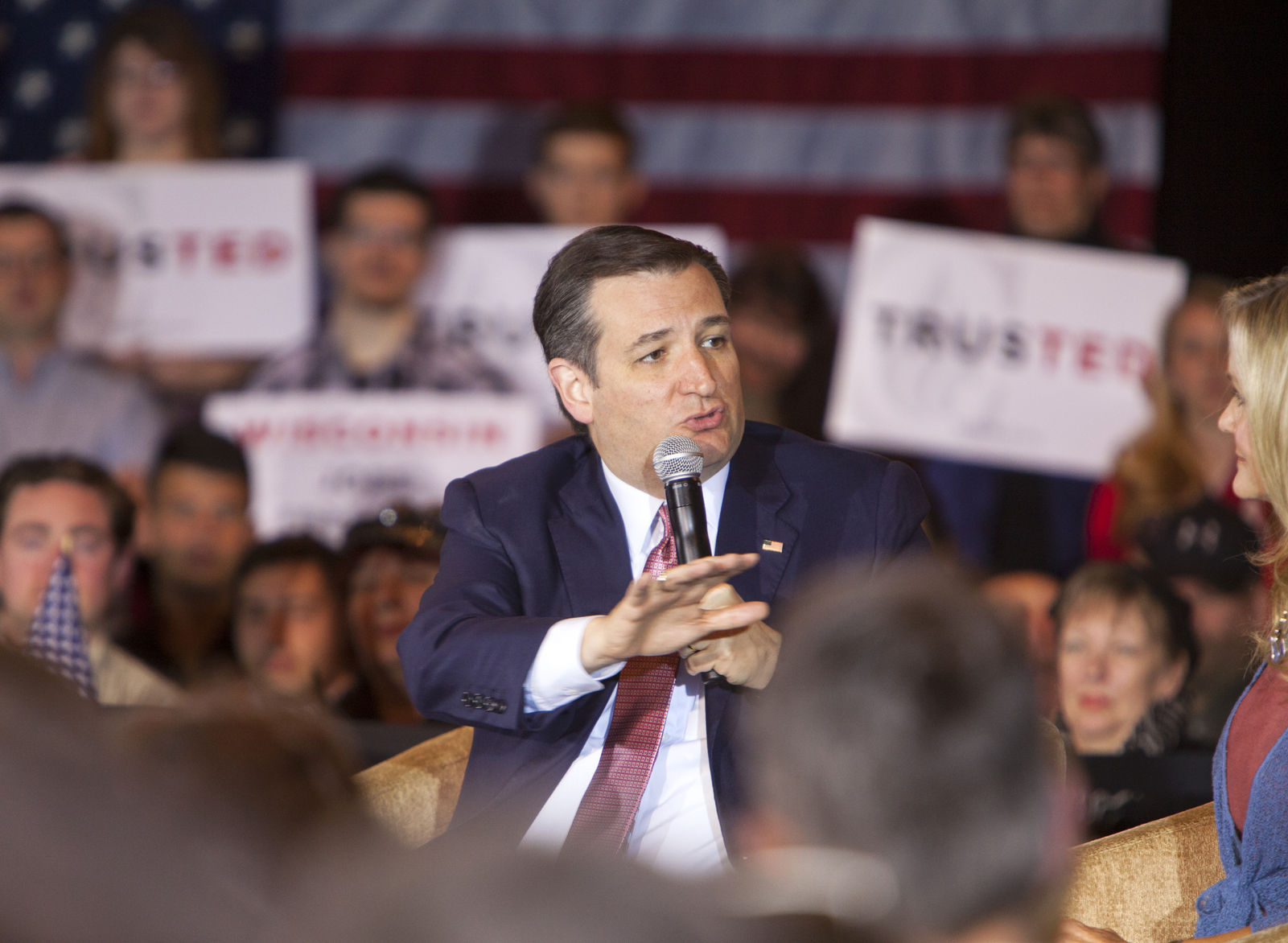Ted Cruz has a real chance to become the Republican nominee. How is he on foreign policy? Although Ted Cruz came into the U.S. Senate in 2013 as a libertarianesque Tea Party acolyte who used the term “neo-cons” as derogatory label, he has since moved in their direction in a chameleon-like attempt to win the multitudes of increasingly hawkish Republican primary and caucus voters. With the excessive fearmongering in the American media over the rise of the ISIS terror group, Cruz has resoundingly bought into the flavor of the month in national security threats.
Cruz famously and irresponsibly, in classic chair borne warrior style, took a solemn oath to “carpet bomb ISIS into oblivion.” The trouble was that even U.S. military chieftains, long beyond reproach with the American public even though they haven’t had many successful outcomes recently, properly criticized Cruz—because “carpet bombing” is a term used to describe attacking even civilian areas.
Under international law and practice, such bombing would be unequivocally a war crime. Cruz’s foreign policy advisors tried to clean this up by saying that he meant “an overwhelming air campaign.” Even this effort would inadvertently (instead of intentionally with carpet bombing) kill many civilians, thus enraging the local population and becoming a recruiting poster for swelling the ranks of ISIS.
ISIS needs to be defeated on the ground using adequately trained local or regional forces that know the language, culture, customs, and religion in Sunni areas of Iraq and Syria. These forces, although less capable than U.S. forces on the battlefield, are more likely than them to gain valuable intelligence on who is and who is not an ISIS fighter, thus limiting the killing of innocents. As a macho politician-general, Cruz would not know this but exhibiting some finesse and winning the “hearts and minds” of the locals is necessary to make ISIS less popular among Sunnis, who feel oppressed by the Shi’ite governments of Iraq and Syria. Formally recognizing that Iraq and Syria have been partitioned by war, and likely can never be put back together again, would go a long way toward undermining ISIS by taking the power to oppress away from the Shi’ite governments and giving autonomy to Sunni areas. Sunnis would then not need to depend on ISIS to defend them against these governments and might instead overthrow ISIS.
This solution is beyond Ted Cruz. But in fairness, it has also eluded the U.S. government and the other remaining presidential candidates.
Nevertheless, Cruz’s picks for foreign policy advisers are also worrisome. Victoria Coates, a bellicose art historian, and Frank Gaffney, a former assistant secretary of defense in the Reagan administration and uber-hawk, are typical examples. The latter may be where Cruz gets his pledge to massively increase the defense budget.
Cruz is too much of an amateur in foreign policy and defense to realize that with two gigantic ocean moats, relatively weak and friendly neighbors, and the world’s most capable nuclear arsenal, the United States may be the most intrinsically secure great power in history. Yet the U.S. already spends more than the combined defense spending of the next eight highest countries, including Russia and China. Contrary to Cruz’s pledge, the United States actually could reduce its defense budget substantially and remain secure.
Of course, despite Cruz’s more belligerent turn, he is still not the most hawkish candidate in the 2016 race; Hillary, with her support for the moronic Iraq War and her advocacy of the calamitous overthrow of Muammar Gaddafi in Libya, wins that dubious honor. To his credit, Cruz criticizes George W. Bush-like nation building and reminds audiences that Ronald Reagan only invaded one country—Grenada. (Cruz fails to mention that Reagan disastrously got more than 200 U.S. service personnel killed in Lebanon in a nation-building fiasco and also launched an unprovoked attack on Libya.)
Cruz’s senatorial colleagues, no modest group themselves, early on recognized Cruz’s showboating style for personal aggrandizement at the expense of party and country by labeling him “Carnival Cruz.” Donald Trump has opportunistically questioned whether both Obama and Cruz were born in the United States, thus rendering them unqualified to be president. The questioning in Obama’s case is not based in fact and smacks of racist overtones. However, in Cruz’s case, being born in Canada, as he was, is exactly what the nation’s founders wanted to avoid with the requirement that the president had to be born in the United States. During the American Revolution, American sympathizers of Britain (called Tories) had fled to Canada; the founders worried that they would send back their Canadian-born children to subvert the new American republic. Thus, spoofing the Cold War movie The Manchurian Candidate, in which Communist China brainwashes the son of a right-wing political family to become an unwitting assassin in an international communist conspiracy, some have facetiously called Cruz “The Manitoban Candidate.”
Although all of this is going a bit far, Ted Cruz, with only two years of Senate experience if he is elected president, has shown his amateurish grasp of foreign policy—a significant deficit that impaired both George W. Bush and Obama when they took office. But what are we to do? The only serious candidate with any foreign policy experience who remains in the race is Hillary Clinton and she has poor policy judgment. What a choice the 2016 is likely to provide us in foreign policy!

















